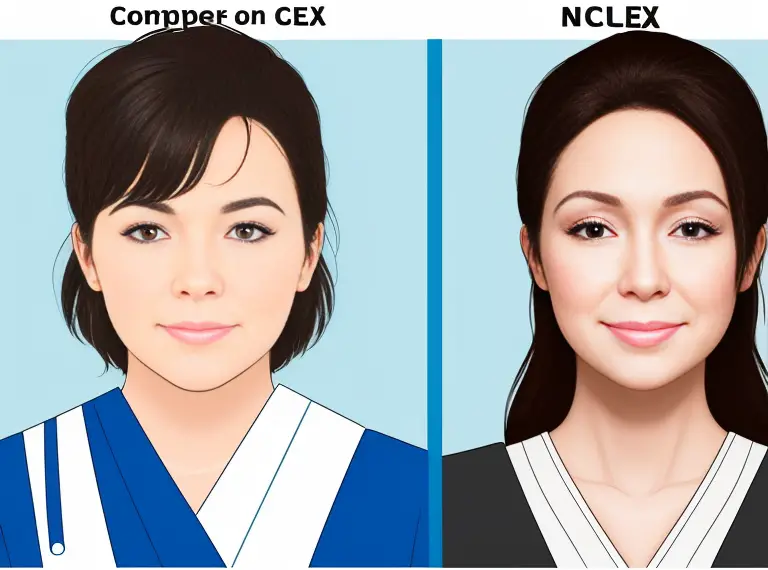Yes, NP school is generally harder than nursing school, but it ultimately depends on your individual strengths, career goals, and personal circumstances.
Understanding the Differences Between NP School and Nursing School
The Basic Curriculum in Nursing School
In nursing school, the curriculum primarily focuses on developing foundational knowledge and skills in patient care. You learn about anatomy, physiology, pharmacology, and basic nursing procedures. The emphasis is on mastering the fundamentals of nursing practice.
The Advanced Curriculum in NP School
On the other hand, NP school builds upon the foundation laid in nursing school and delves deeper into specialized areas of advanced practice nursing. The curriculum in NP school revolves around topics such as pathophysiology, advanced pharmacology, diagnostic reasoning, and advanced clinical skills. NPs are trained to diagnose and treat medical conditions, order and interpret diagnostic tests, prescribe medications, and provide comprehensive care to patients.
The Challenges in NP School
The Demand for Higher-Level Clinical Skills
As an NP student, you will be expected to develop a higher level of clinical skills compared to nursing school. You will learn to assess and manage complex medical conditions, make critical decisions, and provide advanced care to patients. This requires a deeper understanding of medical knowledge and the ability to apply it in real-life clinical scenarios.
The Increase in Academic Rigor
NP school involves a more rigorous academic workload compared to nursing school. You will have to engage in in-depth research, analyze evidence-based practice, and participate in complex case studies. The coursework is challenging and requires a high level of critical thinking and problem-solving skills.
The Pressure of Specialization
Choosing to become an NP means specializing in a specific area of healthcare, such as family practice, pediatrics, or geriatrics. This specialization adds additional pressure as you need to become proficient in your chosen field and keep up with the latest advancements and best practices.
The Stress Factors in Nursing School
The Initial Shock of Clinical Exposure
For many nursing students, the transition from classroom learning to clinical practice can be overwhelming. The first few clinical rotations can be particularly challenging as you adapt to the fast-paced and unpredictable nature of healthcare settings. It takes time to gain confidence and develop effective clinical skills.
The Volume of Information to Absorb
Nursing school requires absorbing a vast amount of information, including medical terminology, disease processes, medication administration, and nursing interventions. The sheer volume of material can be daunting, and it requires strong study habits and dedication to stay on top of the coursework.
The Struggle of Time Management
Balancing the demands of nursing school, clinical rotations, and personal life can be a significant source of stress. Nursing programs often have a demanding schedule, and time management skills are essential to stay organized, complete assignments, and study effectively.
Comparing the Hardships: NP School VS Nursing School
The Length and Intensity of Programs
NP school typically takes longer to complete than nursing school. While nursing school can be completed in two to four years, depending on the program, NP programs usually require two to three additional years of advanced coursework and clinical hours. The intensity of NP school is also higher due to the advanced level of knowledge and skills required.
The Level of Autonomy and Responsibility
NPs have a higher level of autonomy and responsibility compared to registered nurses (RNs). They can diagnose and treat medical conditions, prescribe medications, and manage complex patient cases. This level of independence comes with increased accountability and the need for advanced decision-making skills.
The Expectations of Experience
As an NP, there is an expectation of prior nursing experience before entering NP school. This experience provides a foundation of clinical skills and patient interaction that can enhance the learning experience in NP school. In nursing school, there is less emphasis on prior experience, and students learn the basics of nursing practice from scratch.
Determining What Might Be Harder For You
Analyzing Your Academic Strengths
Consider your academic strengths and weaknesses. If you excel in critical thinking, problem-solving, and handling complex medical knowledge, then NP school may be a better fit for you. However, if you prefer hands-on patient care and mastering the fundamentals of nursing practice, nursing school may be more suitable.
Assessing Your Career Goals
Think about your long-term career goals. If you aspire to have a higher level of responsibility, autonomy, and the ability to provide comprehensive care to patients, then NP school may align better with your goals. However, if you prefer a more focused role as a registered nurse, nursing school may be the right path for you.
Considering Your Personal Circumstances
Take into account your personal circumstances, such as financial obligations, family responsibilities, and time commitments. NP school often requires a significant investment of time and resources, including additional years of schooling and clinical hours. If you have the flexibility and support to pursue a longer and more demanding program, NP school can be a rewarding option. However, if you need to enter the workforce sooner or have other personal constraints, nursing school may be a more practical choice.
Both nursing school and NP school offer unique challenges and opportunities for growth, and choosing the right path can lead to a fulfilling and successful career in healthcare. In making the decision between NP school and nursing school, remember that both paths come with their own set of challenges. While NP school may be considered harder due to the advanced clinical skills required, increased academic rigor, and the pressure of specialization, it ultimately depends on your individual strengths, career goals, and personal circumstances.
FAQs
Q: What are the key differences in job responsibilities between an NP and an RN?
A: NPs have a higher level of responsibility compared to RNs. NPs can diagnose and treat medical conditions, prescribe medications, and provide comprehensive care to patients. RNs focus on providing direct patient care and implementing nursing interventions based on the care plan developed by the healthcare team.
Q: Can I work as an NP without completing NP school?
A: No, completion of an NP program and obtaining the necessary certification and licensure is required to work as an NP. NP school provides specialized education and training to prepare you for the role of an advanced practice nurse.
Q: Are there any prerequisites for NP school?
A: Yes, NP programs often have specific prerequisites that must be completed before admission. These prerequisites may include courses in anatomy, physiology, pharmacology, and statistics, among others.
Q: How long does it take to become an NP after completing nursing school?
A: The length of time it takes to become an NP after nursing school depends on the program and your individual circumstances. On average, it can take an additional two to three years to complete NP school.
Q: Can I specialize in more than one area as an NP?
A: Yes, some NPs choose to specialize in multiple areas of healthcare. However, keep in mind that specializing in multiple areas may require additional coursework and clinical hours.
Q: Are there any scholarships or financial aid options available for NP school?
A: Yes, there are scholarships, grants, and financial aid options available specifically for NP students. Research and explore these opportunities to help alleviate the financial burden of NP school.
Q: Can I work as an NP while pursuing a doctoral degree in nursing?
A: Yes, it is possible to work as an NP while pursuing a doctoral degree in nursing. However, it may require careful time management and balancing work and academic responsibilities.
Q: Are there any opportunities for online NP programs?
A: Yes, there are online NP programs available. Online programs offer flexibility for students who may need to work or have other personal commitments while pursuing their education.
Q: Can I specialize in a specific patient population as an NP?
A: Yes, NPs can specialize in a specific patient population such as pediatrics, geriatrics, family practice, or women’s health, among others. Specializing allows NPs to focus on providing specialized care to a specific group of patients.
Q: Are there any differences in salary between NPs and RNs?
A: Generally, NPs earn a higher salary than RNs due to the higher level of education, specialization, and scope of practice. However, salaries can vary depending on factors such as geographic location, years of experience, and the specific healthcare setting.














